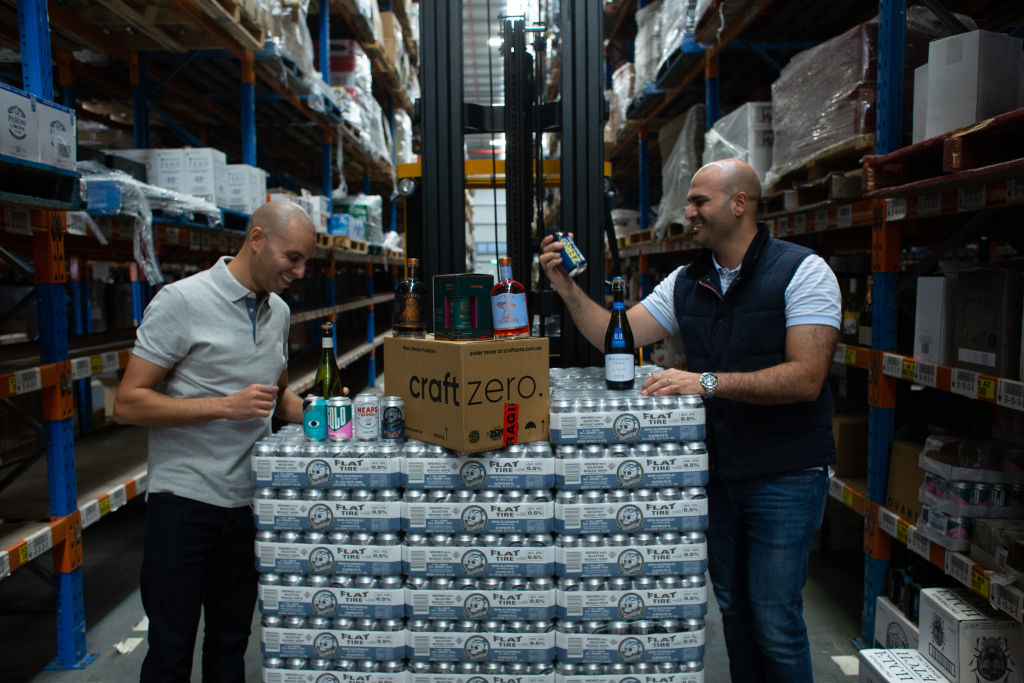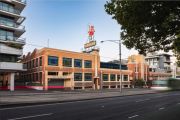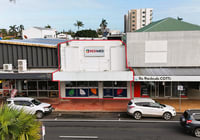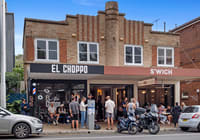
Non-alcoholic drink platform Craftzero taps into booming e-commerce sector
When brothers-in-law Sherif Goubran and Marc Naggar decided to start a new business selling non-alcoholic drinks in May 2020, they started off working from a 50-square-metre space in Sydney’s Leichhardt, with five pallets of stock.
But as demand for their Craftzero online shop boomed on the back of a new health consciousness about cutting back on pandemic alcohol consumption, in September the pair moved to a warehouse facility in Ingleburn with an allocated space of 100 square metres.
Today, they rent a space of 280 square metres with a five-metre clearance height for the 170 pallets of stock they’re now having to hold. “It’s been an incredible ride, and we’re so happy with how it’s been going,” Mr Goubran said. “It’s getting bigger every day.
“We’re now selling 12 times what we did last July, and we’re having to expand the amount of warehouse and storage space we’re using all the time. A lot of people are looking for good alternatives to drinking alcohol and small producers have so many quality products now. This is just the beginning of a major wave.”
COVID-19 e-commerce success stories like these have helped propel the take-up of industrial property in Australia to a record high, with a 141 per cent increase in pre-leasing activity tracked in the second quarter of 2021.
The country’s east coast is now 80 per cent above its long-run average of take-up volumes, while its amount of vacant industrial property has fallen by 23 per cent, the biggest quarterly decrease since 2010, according to the latest Australian Industrial Review issued by commercial agents Knight Frank Australia.
Another record 2.2 million square metres of newly supplied industrial assets is predicted for the east coast, while total infrastructure investment volumes in 2021 are already over $8 billion.
“I think the expansion is only going to continue from here,” said Katy Dean, associate director of industrial research at Knight Frank. “If you just look at the share of online retail, it’s still only half of what it is globally, and that’s a benchmark for the group.
“More companies and businesses are now making the investment in supply chain improvements, and investing in increasing efficiencies as either large or small investors, because they’re being forced to.
“All the businesses are needing more storage space and we’re seeing big companies, like Amazon, Target, Woolworths and Coles, with deals for huge amounts of space, and also seeing small companies going into larger spaces in multi-tenanted warehousing all the time.”
Industrial property has traditionally been the ugly duckling of the property market, but no more. The explosion in e-commerce, accelerated by the pandemic, has now turned it into one of the most dynamic sectors of the market.
Infrastructure investment in industrial assets is now at a historic high with $110 billion worth in the pipeline over the next decade.
The fall in the available vacant supply of industrial property has been felt across the country, with Sydney recording the biggest fall of 47 per cent over the second quarter, from 413,000 square metres to 219,000 square metres, followed by Melbourne with a 23 per cent decline to 714,000 square metres and Brisbane with a 9 per cent drop to 545,000 square metres.
This year there are 2.2 million square metres of new industrial supply expected on the eastern seaboard, with another 2.1 million square metres coming online in 2022. One 1.3-hectare block of land, for instance, at 18 MacGregor Place in Richlands in Brisbane’s outer south-west has just been bought by Clarence Property from Lansky Constructions for $14.44 million. It will soon be home to a 7,683-square-metre logistics facility, with construction set to start straight away.
But with demand accelerating so rapidly, prices are also expected to rise. Ms Dean said the landmark price of $3.8 billion achieved on Blackstone’s Milestone 45-asset portfolio sale to ESR and its sovereign wealth fund partner, GIC, at a 40 per cent premium to its December valuation, clearly illustrates the intensity of investor demand for industrial and logistics assets.
“At the moment, we’re seeing developers land-banking, getting ready for the next wave,” she said. “We saw this demand start way before the pandemic, in 2017/18, but it’s really taken off now. We’re seeing demand increasing strongly both at the big end of the expansion and the smaller end.”
At Craftzero, for example, which is on track to complete $3 million in sales of non-alcoholic wine, beer and spirits by the end of 2021 and $6 million by the end of 2022, Mr Goubran is already eyeing up more industrial warehousing space for his company’s continued growth.
“At the moment we’re very busy with our expansion in Australia,” he said. “We also now have plans for New Zealand and the US, but at the moment we’re still trying to take care of our Australian customers.”










